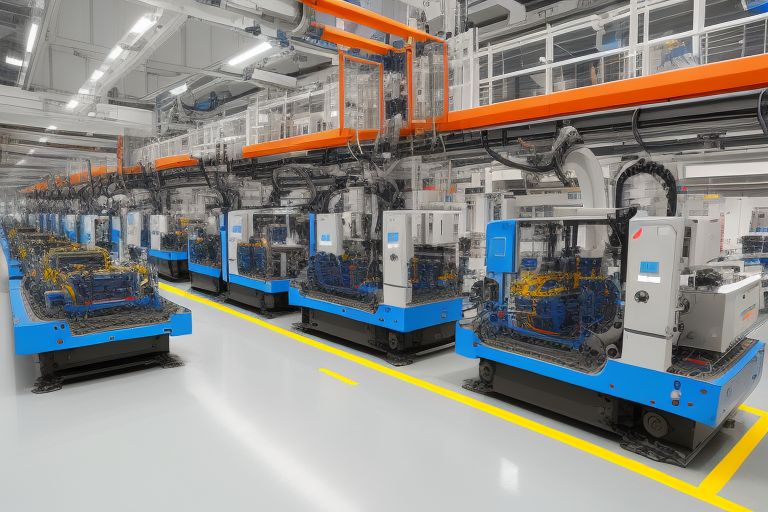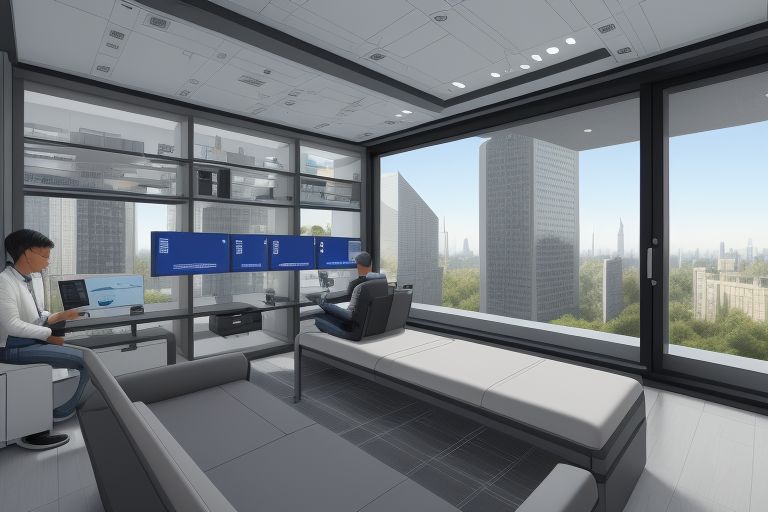Robotics in manufacturing has been a transformative force, revolutionizing production processes across various industries. This transformation is multifaceted, encompassing the integration of automation, the enhancement of efficiency, and the reshaping of workforce dynamics. Here’s a closer look at how robotics is transforming manufacturing:
1. Automation and Precision
Robotic systems in manufacturing offer unparalleled levels of automation and precision. These machines can perform repetitive tasks at a speed and accuracy that far surpasses human capabilities. This not only boosts production rates but also significantly reduces the margin for error, leading to higher quality products. Robotics can handle everything from assembly line operations to intricate component placement, making them invaluable in industries ranging from automotive to electronics.
2. Efficiency and Productivity
The introduction of robotics has dramatically improved efficiency and productivity in manufacturing. Robots can operate 24/7 without the need for breaks, shifts changes, or sleep. This continuous operation capability means production lines can run around the clock, drastically reducing production times and increasing output. Additionally, robots can be programmed to perform multiple tasks, further optimizing production processes and reducing the need for multiple machines.
3. Safety and Ergonomics
Robotic systems also play a crucial role in enhancing workplace safety and ergonomics. By taking over dangerous or physically demanding tasks, robots reduce the risk of injuries and accidents on the manufacturing floor. This not only protects workers but also can lead to significant cost savings for companies in terms of reduced insurance premiums and liability. Furthermore, with robots handling the more strenuous tasks, human workers can focus on more complex and creative aspects of production, improving job satisfaction and reducing physical strain.
4. Flexibility and Scalability
Today’s robotic systems are more flexible and scalable than ever before. With advancements in artificial intelligence and machine learning, robots can adapt to different tasks and environments with minimal reprogramming. This makes it easier for manufacturers to adjust production lines and introduce new products without significant downtime or investment in new machinery. Scalability is also enhanced, as adding more robots to the production line can be a straightforward way to increase capacity.
5. Reshaping Workforce Dynamics
The integration of robotics in manufacturing is reshaping workforce dynamics. While there are concerns about job displacement, the reality is more nuanced. Robots are often used for tasks that are difficult to fill due to labor shortages or the unpopularity of certain jobs. Moreover, the demand for skilled workers to design, program, and maintain these robotic systems is growing. This shift is leading to the creation of new job opportunities and requires a rethinking of skills and training in the manufacturing sector.
6. Sustainability
Robotic systems can also contribute to sustainability efforts in manufacturing. By optimizing production processes and reducing waste, robotics can help companies achieve more environmentally friendly operations. Precision in manufacturing reduces material waste, and efficiency gains can lead to lower energy consumption. Furthermore, robots can be used in recycling and repurposing materials, further contributing to sustainable practices.
Conclusion
Robotics in manufacturing is not just about automating production processes; it’s about transforming them. This transformation brings about increased efficiency, improved safety, and new opportunities for innovation and sustainability. As technology continues to evolve, the role of robotics in manufacturing is set to become even more integral, reshaping the industry in ways that were once unimaginable. The future of manufacturing lies in the harmonious integration of human creativity and robotic precision, leading to a new era of production excellence.



